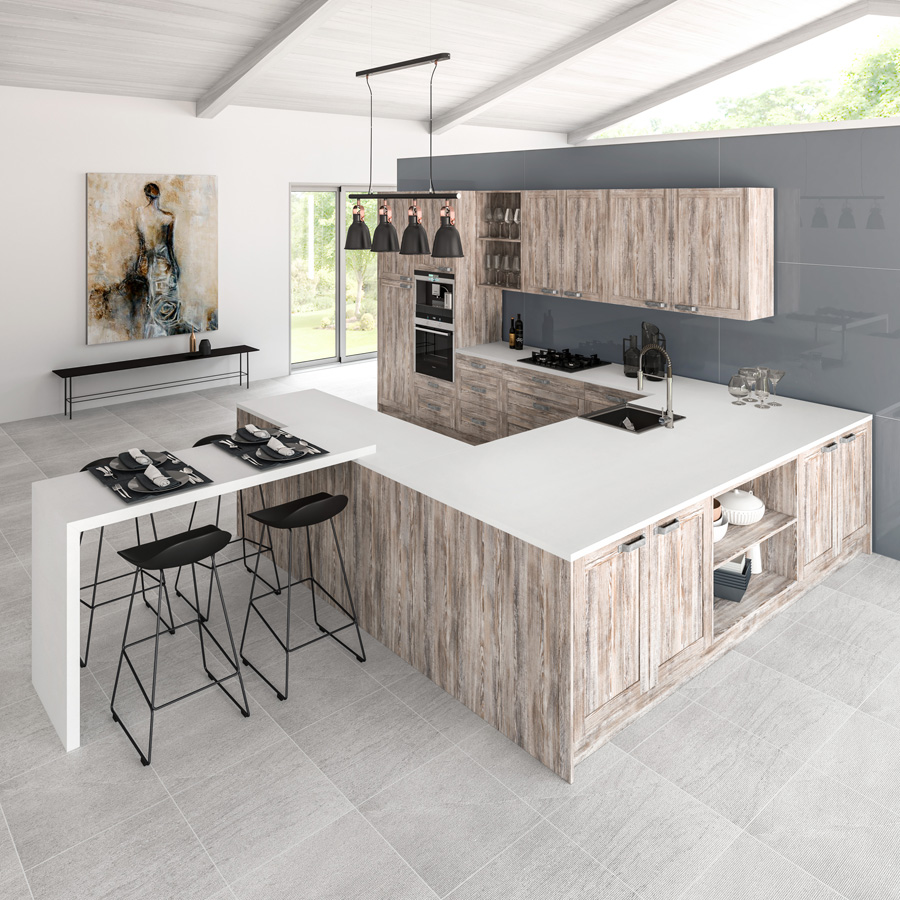When planning a kitchen renovation, one of the key components to consider is your countertops. They play a crucial role in the functionality and aesthetics of your kitchen. However, with a variety of materials, styles, and finishes available, budgeting for kitchen countertops can be a bit tricky. Here’s a comprehensive guide to help you budget effectively for your kitchen countertops.
1. Understanding Your Needs and Preferences
Before diving into the costs, it’s essential to understand your needs and preferences. Consider the following questions:
- How much counter space do you need?
- What type of activities will your countertops endure (heavy cooking, baking, etc.)?
- Do you prefer a specific material for its look or functionality?
2. Popular Countertop Materials and Their Costs
The material you choose significantly impacts the cost. Here’s a breakdown of some popular options:
Granite
- Cost: $40 – $100 per square foot (installed)
- Pros: Durable, heat-resistant, variety of colors and patterns
- Cons: Requires sealing, heavy
Quartz
- Cost: $50 – $150 per square foot (installed)
- Pros: Non-porous, low maintenance, wide range of colors
- Cons: Can be expensive, not as heat-resistant as granite
Marble
- Cost: $50 – $150 per square foot (installed)
- Pros: Luxurious look, unique veining
- Cons: Prone to scratching and staining, requires regular sealing
3. Additional Costs to Consider
When budgeting for countertops, don’t forget these additional costs:
- Installation: Professional installation can add significantly to the cost. Make sure to get quotes from multiple installers.
- Edging and Backsplashes: Decorative edges and backsplashes can increase the overall cost.
- Removal of Old Countertops: If you’re replacing existing countertops, factor in the cost of removal and disposal.
- Sealing and Maintenance: Some materials, like granite and marble, require regular sealing, which is an ongoing cost.
4. Budgeting Tips
- Set Priorities: Decide what aspects are most important to you—durability, appearance, maintenance, or cost.
- Get Multiple Quotes: Always get multiple quotes from suppliers and installers to ensure you’re getting the best deal.
- Plan for Contingencies: Budget an extra 10-15% for unforeseen expenses or upgrades.
- Consider DIY: If you’re handy, some countertop materials like laminate or butcher block can be a DIY project, saving on installation costs.
5. Final Thoughts
Your kitchen countertops are a significant investment, both in terms of cost and impact on your kitchen’s functionality and aesthetics. By carefully considering your needs, researching material options, and budgeting thoughtfully, you can choose countertops that will enhance your kitchen for years to come.
Remember, the right countertop can not only elevate your kitchen’s look but also make your daily cooking experience more enjoyable. Happy renovating!

